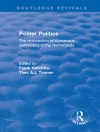With Critical Thinking for Strategic Intelligence, Katherine Hibbs Pherson and Randolph H. Pherson have updated their highly regarded, easy-to-use handbook for developing core critical thinking skills and analytic techniques. This indispensable text is framed around 20 key questions that all analysts must ask themselves as they prepare to conduct research, generate hypotheses, evaluate sources of information, draft papers, and ultimately present analysis, including: How do I get started? Where is the information I need? What is my argument? How do I convey my message effectively?
The Third Edition includes suggested best practices for dealing with digital disinformation, politicization, and AI. Drawing upon their years of teaching and analytic experience, Pherson and Pherson provide a useful introduction to skills that are essential within the intelligence community.
Tabela de Conteúdo
The Critical Thinker’s Checklist
List of Figures
Foreword
Preface
About the Authors
Introduction to the Third Edition
Introduction
Part I: How Do I Get Started?
Chapter 1: Who Are Your Clients?
Chapter 2: What Are the Key Questions?
Chapter 3: What Is the Broader Context for the Analysis?
Chapter 4: How Should I Conceptualize My Product?
Chapter 5: What Is My Analytic Approach?
Chapter 6: Can Collaboration Contribute to a Better Answer?
Part II: Where Is The Information I Need?
Chapter 7: How Do Models Help My Analysis?
Chapter 8: What Types of Information Are Available?
Chapter 9: Can I Trust the Sources?
Chapter 10: How Should I Assess the Reliability of Internet Information?
Part III: What Is My Argument?
Chapter 11: Are My Key Assumptions Well-Founded?
Chapter 12: Can I Make My Case?
Chapter 13: Did I Consider Alternative Hypotheses?
Chapter 14: How Do I Deal With Politicization?
Chapter 15: How Might I Be Spectacularly Wrong?
Part IV: How Do I Convey My Message Effectively?
Chapter 16: Is My Argument Persuasive?
Chapter 17: How Should I Portray Probability, Levels of Confidence, and Quantitative Data?
Chapter 18: How Can Graphics Support My Analysis?
Chapter 19: How Do I Present My Message in the Most Compelling Way?
Chapter 20: How Do I Know When I Am Finished?
Part V: Case Studies
Case Study I: Uncharted Territory
Case Study II: Russian Disinformation
Case Study III: Blackout on the Eastern Seaboard!
Case Study IV: The End of the Era of Aircraft Carriers
Case Study V: Puzzling Food Poisonings in Germany
Case Study VI: The Case of Iraq’s Aluminum Tubes
Glossary of Terms
List of Names
Recommended Readings
US Government Publications
Index
The Analyst’s Roadmap
Sobre o autor
Randolph H. Pherson is president of Pherson Associates, LLC; CEO of Globalytica, LLC; and a founding director of the nonprofit Forum Foundation for Analytic Excellence. He teaches advanced analytic techniques and critical thinking skills to analysts in the government and private sector. Mr. Pherson collaborated with Richards Heuer Jr. in developing and launching use of Analysis of Competing Hypotheses, and he developed several analytic techniques for the CIA’s Sherman Kent School, many of which were incorporated in his Handbook of Analytic Tools and Techniques. He coauthored Critical Thinking for Strategic Intelligence with Katherine Hibbs Pherson, Cases in Intelligence Analysis: Structured Analytic Techniques in Action with Sarah Miller Beebe, and several other guides for analysts on writing, briefing, indicators, and managing the production process. Mr. Pherson completed a twenty-eight-year career in the Intelligence Community in 2000, last serving as National Intelligence Officer (NIO) for Latin America. Previously at the CIA, Mr. Pherson managed the production of intelligence analysis on topics ranging from global instability to Latin America, served on the Inspector General’s staff, and was chief of the CIA’s Strategic Planning and Management Staff. He is the recipient of the Distinguished Intelligence Medal for his service as NIO and the Distinguished Career Intelligence Medal. Mr. Pherson received his B.A. from Dartmouth College and an M.A. in international relations from Yale University.












